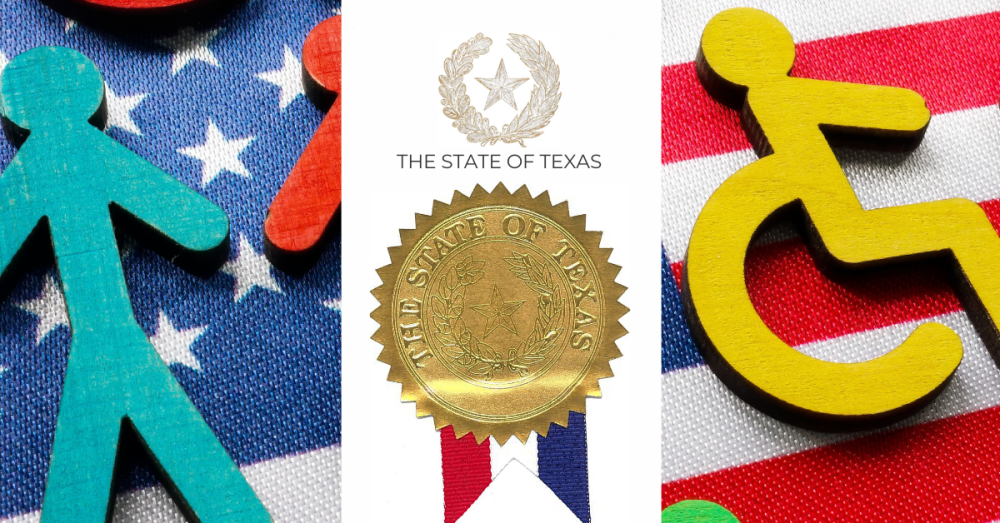The George H.W. Bush Presidential Library and Museum hosted the 34th Anniversary and Commemoration of the Americans with Disabilities Act on Friday.
The event in College Station featured a video message from Gov. Greg Abbott, who detailed his own experience as a disabled person after a tree fell on him during a run, leaving him paralyzed from the waist down in 1984.
“If there was one thing I learned from this accident, it is this: anybody can overcome anything and achieve their goals. Our lives are not determined by our challenges,” said Abbott in the video. “Instead, they’re determined by how we respond to those challenges.”
In the 34th anniversary proclamation signed by Abbott, he said, “Proudly, Texas has never shied away from advocating for equal disability rights, and on this day, we honor and recognize leaders of the disability rights movement. In addition to Texas’ very own George H. W. Bush, Justin Dart, and Lex Frieden have embodied the spirit of justice and equality that defines our people and have ensured that each of us has a chance to pursue the great American Dream.”
Frieden, a disabled activist and one of the architects of the ADA, attended the event, where he was honored for his advocacy. Frieden and Robert Holzweiss, deputy director of the George H.W. Bush Presidential Library and Museum, hosted a conversation about the work that has been done since the ADA was first enacted.
“Before the ADA, we lived in a different world. People with disabilities could be out in public, and we were unique, and that was not always a good thing,” said Frieden.
“We couldn’t get into movie theaters, federal buildings, the post office. We couldn’t get to those places because there was no access. Deaf people couldn’t communicate with anyone unless they had an interpreter with them, and there were very few trained interpreters who could help them,” he said. “Blind people had difficulty finding ways around navigating. There were no signs, no Braille menus, no attempts to aid people in confronting the barriers we had in our environment. People with disabilities were working to educate others to know that it’s not our disabilities that prevent us from doing things. The barriers in society, the attitudinal barriers and physical barriers. Once we could overcome those, we could achieve a lot. But it was a difficult path.”
Frieden said that every day is worth celebrating when looking back at the progress made, but he noted that it is important to continue to make strides in creating a more accessible society.
“One thing we know is that ADA will be supported if we complain when we see something. If you see something, say something. File a complaint if you find an inaccessible place,” he said.


